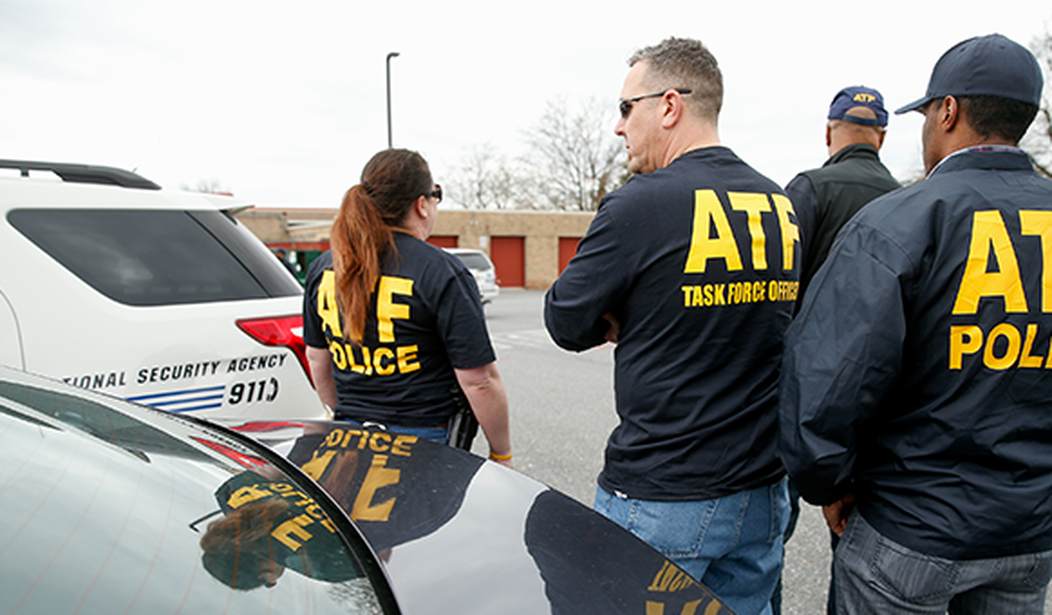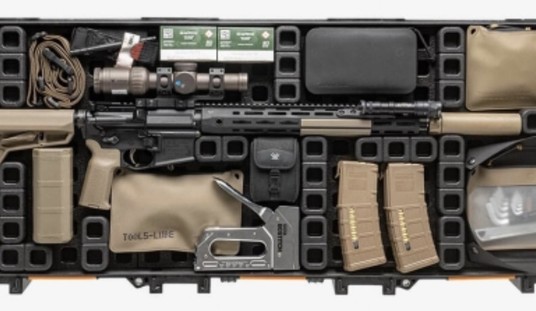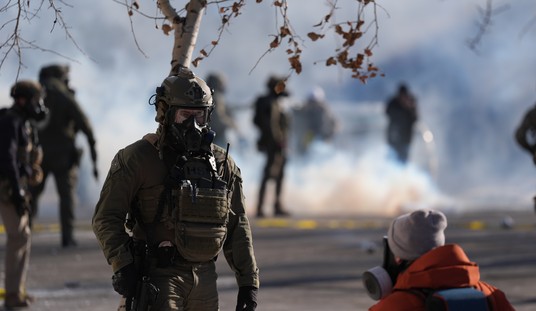No matter what laws are on the books, there will be some who break those laws. This is particularly true with regard to guns. We've seen it not just here in our nation but elsewhere as well. Where there is a demand for firearms, someone will seek to profit by meeting that demand, whether the trade is lawful or not.
But we have law enforcement agencies that ostensibly seek to keep guns out of the hands of criminals. That's the argument made in defense of the ATF, at least.
Yet there are two different stories that provide some interesting contrast.
Let's start with the story of an arrest by the NYPD.
More than a dozen baby-faced reputed members of two Bloods-affiliated Brooklyn street gangs were knocked out of commission on murder, gun and conspiracy charges, prosecutors announced Wednesday.
Fifteen gangbangers who are part of the H-Block and Billy gangs — described by prosecutors as part of “a territorial alliance” between the crews — were named in an 85-count indictment that includes charges for two murders and a series of shootings that left innocent bystanders wounded, prosecutors said.
A significant number of guns were recovered during the arrest, but do you know who isn't mentioned in this story? The ATF.
It seems the feds weren't involved in this investigation at all. This was purely by the NYPD, and while New York has incredibly restrictive gun control laws, these thugs got their grubby little paws on firearms just the same, and the federal agency supposedly responsible for preventing just that from happening.
So where was the ATF?
Well, I can't help but also think about this story from Lee Williams over at The Gun Writer about an Oklahoma gun dealer taking a plea deal.
Last November, a federal grand jury issued a three-count indictment charging Fincher with two felonies and one misdemeanor:
Count one: Engaging in the business of dealing firearms without a license, a felony.
Count two: Selling ammunition to a prohibited person, a felony.
Count three: Making false entry in records by a federal firearms dealer, a misdemeanor.
Fincher was arrested, booked and released, subject to a $10,000 unsecured bond.
Fincher’s Federal Public Defender negotiated a plea agreement, in which Fincher would plead guilty to selling ammunition to a prohibited person, which is punishable by up to 15 years imprisonment and a $250,000 fine. Prosecutors agreed to dismiss the two remaining charges once Fincher signed the plea agreement.
The deal would keep Fincher out of prison. Both sides agreed that three years of probation would be “the appropriate disposition of the case.” The plea agreement also specified that Fincher would not contest the forfeiture of 39 firearms.
There were two major admissions Fincher would have to make if he took the plea. The first required he confess to selling firearms and ammunition without a Federal Firearm License, even though he had a valid FFL during the dates specified.
As Williams points out later in this piece, Fincher is in Oklahoma, which doesn't require a background check for ammo, so how was he supposed to know someone was prohibited?
Now, like Williams, I get why Fincher would accept the plea deal. Defending yourself is expensive and troublesome and the risk to your family is significant if convicted. A deal that keeps you out of prison is awfully tempting if for no other reason than to make it go away so you can move on with your life.
But there are questions that need to be answered, such as why the ATF was targeting a pastor in Oklahoma--one who actually did have an FFL when he was selling guns, it should be noted--when there are gang-bangers running around New York with firearms.
See, that's the contrast that is so jarring to me here.
We've got a couple of street gangs in the Big Apple shooting up neighborhoods killing people and injuring innocent bystanders and the ATF is nowhere to be seen. Then you've got a licensed gun dealer selling firearms being raided and now convicted of selling ammo to a customer who, it turns out, shouldn't have had it.
The priorities are beyond screwed up here.
What's more, Fincher isn't alone. We've seen way too many revocations of FFLs for piddly things and we've seen the ATF "cracking down" on supposedly rogue gun dealers only to find that the issue is paperwork errors. The ATF even acknowledges that fewer than one percent of all gun dealers ever knowingly break the law, but they're doing this instead of look at the real problem.
Williams notes in his piece that ATF Director Steve Dettelbach claims the bureau is going after the trigger-pullers and other actual bad guys, but it sure as hell looks like he's leaving that up to people like the NYPD while he and his guys just try to make life difficult for lawful gun dealers.







